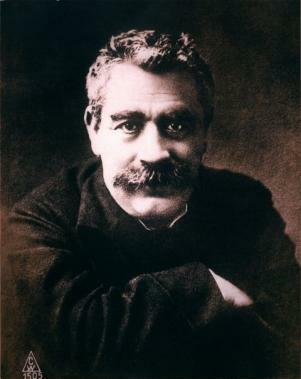I. L. Peretz: Hope and Fear

In 1914, just one year before his death, the revered Yiddish writer and lifelong socialist Isaac Leib Peretz, commonly known as I. L. Peretz, sent greetings on the occasion of an important workers’ victory:
"My heart is with you. My eye cannot have its fill of your flaming flag. My ear never tires of listening to your sonorous song . . . And yet . . . And yet I have my fear of you. I fear the oppressed who are victorious lest they turn into oppressors . . . Is there not already talk among you that humanity must march like an army? . . . And yet, humanity is not an army . . . With real joy I see you tear down the walls of Sodom. But my heart trembles lest you build on its ruins a new, worse Sodom—more cold, more gloomy! . . . Cruelly you will defend the equal rights of the herd to the grass beneath their feet . . . and your foes will be the free individual, the savior, the poet, the artist, and all who strive to ascend beyond man . . . You will tread underfoot the buds of the dawning morrow, you will destroy its blossoms, you will pour streams of icy water upon the flowering heads of prophecy, vision, and new hope . . . I hope and pray for your victory, but I fear and tremble at your victory. You are my hope; you are my fear."
A few of the Peretz resources in our collections
In 2015, we published a special issue of Pakn Treger focused on I. L. Peretz. From “Peretz: Redux,” read Debra Caplan’s reconsideration of Peretz’s theater career, David Mazower’s article on the formidable writer’s legacy, and Eitan Kensky’s introductions to Yosl Bergner’s influential illustrations of Peretz’s prose.
“If Yiddish is to become a full member in the family of the languages of the world, it must become accessible to the world"—Read Peretz’s address to the historic Czernovitz Conference, in which he makes the case for the Yiddish language.
To learn more about the classic Yiddish writer, look no further than this "finding aid" to the Peretz items in our collections, featuring digital books, audio, articles, and more.

